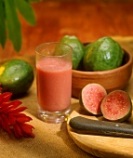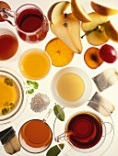Richard Dawkins has stated that “there is no alternative medicine. There is only medicine that works and medicine that doesn’t work.”
Alternative Medicines 
Alternative medicine is non-conventional medicine” Critics assert that the terms “complementary” and “alternative medicine” are euphemisms meant to give an impression of medical authority. But they may be wrong! Examples of non conventional medicine include:
naturopathy,
chiropractic medicine,
herbalism,
Ayurveda,
meditation,
homeopathy,
acupuncture,
nutritional-based therapies, in addition to a range of other practices.
Holistic therapies and their effects!
One of the main advantages of holistic therapies is that they have few side effects when used correctly.
If a reputable practitioner is chosen, and guidelines are adhered to, the worst that typically happens is that when lifestyle is changed, and fresh nutrients are provided, the body begins to eliminate toxins that may have accumulated in the cells over a lifetime.
Often this results in what is known in alternative medicine circles as a “healing crisis.” This comes about when the cells eliminate poisons into the blood stream all at the same time, throwing the system into a state of toxic overload until it can clear the “backlog.” Symptoms such as nausea, headaches, or sensitivities to noise and other stimulations may be experienced.
The answer to most otherwise healthy patients is often just to lie quietly in a darkened room and take herbal teas. However, in the case of someone who has a serious illness, such as arthritis, colitis, diabetes, or cancer, (the list is much longer than this), it is strongly advised that they seek the help of a qualified practitioner. Therapists can help patients achieve detoxification in a way that causes the least stress to their bodies.

Homeopathy: Are there any side effects?
Basically there are no known side effects of homeopathic medicines but a homeopathic aggravation sometimes occurs during initial treatment with homeopathic remedies. This means that symptoms can temporarily worsen during the process of healing. Although this is usually mild, the aggravation can sometimes be severe. Homeopaths see aggravation as a positive sign that the remedy is a good match for the patient’s symptoms. The healing crisis, which happens when the patient is undergoing treatment for layers of symptoms, may also cause the patient to feel worse before feeling better. Some patients can experience emotional disturbances like weeping or depression, if suppressed emotional problems led to the illness in the first place.
Homeopathic medicines are so diluted that sometimes no trace of the original substance can be detected. These medicines are therefore considered non-toxic and generally free of harmful side effects.
Naturopathy: Interference with prescription drugs!
Although naturopathic remedies are from natural sources and pose much less risk than traditional drugs do, there are some side effects with the use of some. One problem they can pose is the interaction with prescription medicines. It is important for a patient to inform his or her allopathic physician about any natural remedies or herbs prescribed by a naturopath.
It is also important to note that the U.S. Food and Drug Administration considers medicinal herbs as dietary supplements, not drugs, and so are not subject to the same regulations as drugs are. Because they come from natural sources, the active ingredients may not always be in the same concentration from bottle to bottle, since plants naturally vary. To guard against using too little or too much of a natural remedy, use herbs and supplements recommended by a naturopath or those produced by well-respected companies.
Meditation refers to any of a family of practices in which the practitioner trains his or her mind or self-induces a mode of consciousness in order to realize some benefit.
Acupuncture is an alternative medicine that treats patients by insertion and manipulation of needles in the body. Its proponents variously claim that it relieves pain, treats infertility, treats disease, prevents disease, promotes general health, or can be used for therapeutic purposes.
 Massage is the manipulation of superficial and deeper layers of muscle and connective tissue to enhance function, aid in the healing process, and promote relaxation and well-being. The word comes from the French massage“friction of kneading”, or from Arabic massa meaning “to touch, feel or handle” or from Latin massa meaning “mass, dough”, Greek verb μάσσω (massō) “to handle, touch, to work with the hands, to knead dough”. In distinction the ancient Greek word for massage was anatripsis,[and the Latin was frictio.
Massage is the manipulation of superficial and deeper layers of muscle and connective tissue to enhance function, aid in the healing process, and promote relaxation and well-being. The word comes from the French massage“friction of kneading”, or from Arabic massa meaning “to touch, feel or handle” or from Latin massa meaning “mass, dough”, Greek verb μάσσω (massō) “to handle, touch, to work with the hands, to knead dough”. In distinction the ancient Greek word for massage was anatripsis,[and the Latin was frictio.
Massage involves acting on and manipulating the body with pressure – structured, unstructured, stationary, or moving – tension, motion, or vibration, done manually or with mechanical aids. Target tissues may includemuscles, tendons, ligaments, fascia, skin, joints, or other connective tissue, as well as lymphatic vessels, or organs of the gastrointestinal system. Massage can be applied with the hands, fingers, elbows, knees, forearm, and feet. There are over eighty different recognized massage modalities The most cited reasons for introducing massage as therapy have been client demand and perceived clinical effectiveness.
Yoga (Sanskrit, Pāli, yóga)
Refers to traditional physical and mental disciplines that originated in India. The word is associated with meditative practices in Hinduism, Buddhism and Jainism. Within Hinduism, it refers to one of the six orthodox (āstika) schools of Hindu philosophy, and to the goal towards which that school directs its practices. In Jainism, yoga is the sum total of all activities — mental, verbal and physical.










